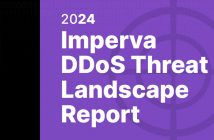
 Millions of consumers have been abandoning WhatsApp in favour of rival messaging platforms, following revelations around the platform’s new data-sharing policies. This brings to the forefront users’ reliance on communications channels that may not meet today’s security and privacy demands.
Millions of consumers have been abandoning WhatsApp in favour of rival messaging platforms, following revelations around the platform’s new data-sharing policies. This brings to the forefront users’ reliance on communications channels that may not meet today’s security and privacy demands.
I’ve met many corporate and public sector executives who admit that correspondence via popular messaging apps has become commonplace within their organisation. Given sensitive information is often shared, it’s imperative that security concerns are taken seriously. The recent backlash highlighted that privacy is far from guaranteed when using WhatsApp or other public services. However, this should not be the only concern.
The public sector, in particular, faces an unprecedented challenge: how to keep citizens and institutions safe while facilitating the free flow of information. To meet this challenge, government organisations must find effective ways to protect sensitive communications without adding friction to critical government operations and missions.
The myth of encrypted communications services
The popularity of WhatsApp for work purposes can be attributed to its use of end-to-end encryption for messages. However, not all encryption is created equal and government agencies must ensure that the encryption used meets relevant standards. Encryption of messages is only part of the picture when it comes to delivering enterprise-grade secured communications.
Voice and messaging communications can carry the following risks:
Data breaches
Even with policies mandating use of secured communications channels, we know that people don’t always do as they’re told. When employees use “more convenient” channels to communicate with colleagues or other stakeholders, there is a risk of data being shared over unsecured devices and networks, outside of the organisation’s control.
A recent Forbes Insights survey found that more than 1 in 5 organisations have experienced a cyber event due to an unsanctioned IT resource…Click here to download the magazine.






